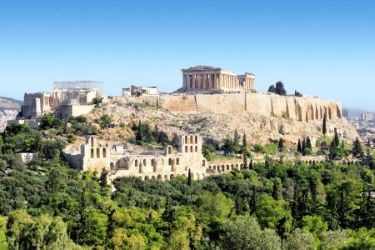Deme-cracy

In American politics today, the word democracy has little meaning. Certainly, anytime democracy comes out of the mouths of America's political class, you can be assured they have no idea what they're talking about. If they did, they more than likely be against it. Unfortunately, they're not unrepresentative of the American public on this issue.
Americans have a vague, but zealous and evangelical sense democracy stands for their constitutional system. Despite the fact that in that long ago summer in Philadelphia, many of the instigators did all sorts of twists and back flips to assure each other they were not implementing democracy. Most notable in this regards was James Madison, traditionally, chiefly credited for the constitution's creation. In the push for adoption, Madison tortuously attempts in The Federalists 14 to create a historical separation between republics and democracy. He writes,
“Is is, that in a democracy, the people meet and exercise the government in person; in a republic, they assemble and administer it by their representatives and agents. A democracy consequently, will be confined to a small spot. A republic maybe extended over a large area.”
Democracy is Greek for “of the people,” while republic is Latin for basically the same thing, a system of government comprised “of the people.” Madison's attempt at a historical distinction between democracy and republic is basically without difference. The first republic was Rome. Just as the Athenian Assembly, Rome’s assemblies, its lawmaking bodies, were gatherings of the entire citizenry. They were participatory, not representative.
For many of America's 18th century patricians, democracy was a disreputable word invoking mobs, not good government. However, with the constitution's ratification, the people claimed the new system as their own. For example, upon the constitution's enactment, every state had property qualifications to vote, within several decades and the addition of another dozen states, no state did.
People aware of democracy's ancient Greek origins equate it, as Madison did, with the Athenian Assembly, where the citizenry met to pass laws and define the policies of the polis. Not a fault of Madison's alone, this was never an adequate understanding of ancient Athenian democracy and in more than a few ways extremely deleterious. The Assembly was only one aspect of Athenian democracy, not necessarily the most important.
Lost to history are the Athenian demes, loosely described as neighborhood governing and political councils. The demes were the true foundation of Athenian governance. Even “your faithful friend and long suffering narrator,” who has literally spent a lifetime studying classical Greece and Rome knew little of the demes. However, a couple years ago, upon reading Josiah Ober's excellent, The Rise and Fall of Classical Greece, I was enlightened.


